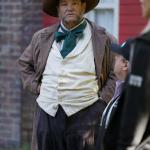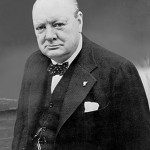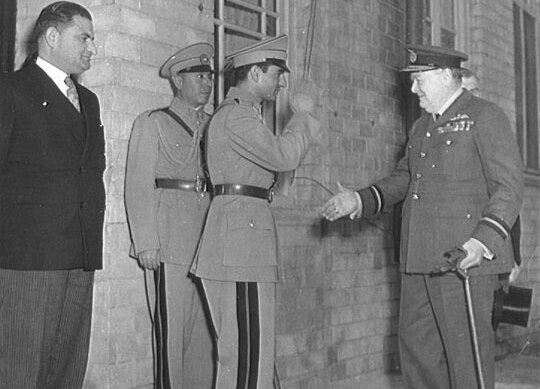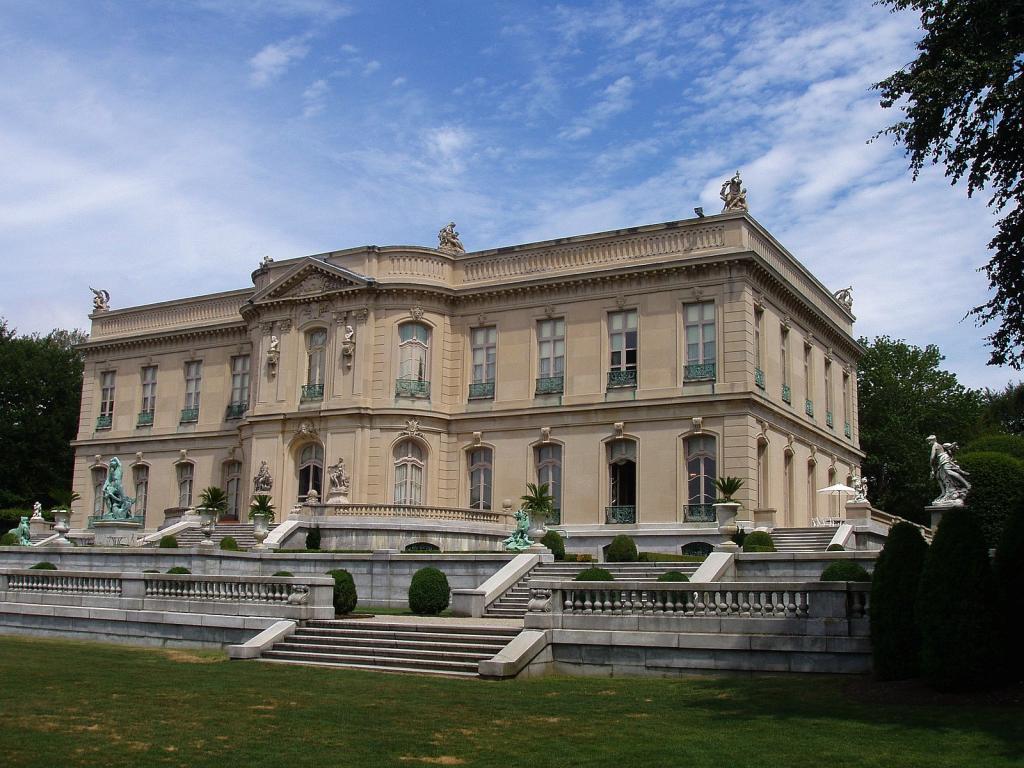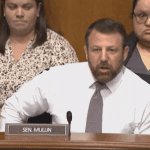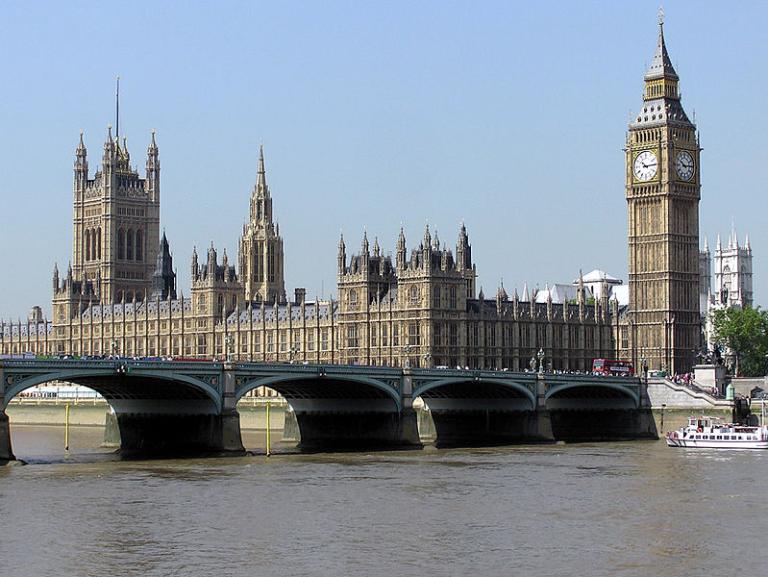
(Wikimedia Commons public domain image)
After our visit to the Churchill War Rooms in London the other day, I bought a copy of Boris Johnson’s The Churchill Factor: How One Man Made History (London: Hodder & Stoughton, 2014). Boris Johnson was himself the, umm, colorful and controversial prime minister of the United Kingdom and leader of the Conservative Party from 2019 to 2022 — and, in addition to that, a member of Parliament from 2001 to 2008, the mayor of London from 2008 to 2016, a member of Parliament yet again from 2015 to 2023, and British foreign secretary from 2016 to 2018.
Although it soon becomes clear that he is far from an uncritical fan, Johnson is plainly a great admirer of Churchill — “as a politician I am not worthy to loosen the latchet of his shoes” (4).
It’s especially interesting to read the thoughts of a future British prime minister (and a man who was already very involved participant in British politics) on a previous prime minister. Johnson is also a very fluent, approachable, and entertaining writer — which is perhaps not altogether surprising in someone who attended Eton College; studied Classics at Balliol College, Oxford; was elected president of the Oxford Union; wrote for The Daily Telegraph; and, from 1999 to 2005, served as the editor of The Spectator — and he seems to have devoured a vast amount of reading about his subject. I am, as I write, 148/355 of the way through The Churchill Factor, and I’m enjoying it enormously. So much so, in fact, that I intend to share few passages from my reading thus far:
Winston’s parents were cold, distant, and neglectful. In particular, his father, Randolph Churchill offered little or no emotional or other support, when he paid even the slightest attention to him. And Winston was small, and scarcely distinguished himself academically. (A grandson of the Duke of Marlborough, and the son of a man, Sir Randolph Churchill, who had been regarded as a future prime minister until his career suddenly flamed out amid scandal and disgrace and who died very young, Winston had been born amid the grandeur of Blenheim Palace — the only non-royal and non-episcopal structure in England to be permitted the title of “palace” — but he attended a relatively undistinguished grammar school before enrolling at Harrow, never attended a university, and required three attempts before he was admitted to the military academy at Sandhurst.) In one of his letters, Randolph predicts to Winston that
[you will] become a mere social wastrel, one of the hundreds of public school failures, and you will degenerate into a shabby unhappy and futile existence. (cited at 41)
Of course, the prophecy didn’t hold up. As Boris Johnson puts it,
Churchill matters today because he saved our civilization. And the important point is that only he could have done it. (5)
Johnson is a strong advocate of at least a limited form of the “great man” view of history and, in the case of Churchill, it’s difficult to disagree with him. Having just employed a metaphor involving the wreck of a hurtling train by a boy’s tossed crowbar, Johnson declares that
Winston Churchill was the crowbar of destiny. If he hadn’t been where he was, and put up resistance, that Nazi train would have carried right on. It was something of a miracle — given his previous career — that he was there at all. (30)
And, more than once, Johnson hints that Churchill’s survival of childhood health difficulties, a proneness to accidents, and, most of all, multiply repeated brushes with death was, in some sense, miraculous:
As usual, he was shot at, and as usual he survived as if by a miracle. (65)
Although he was never really a practicing Christian, Churchill himself seems to have seen his life as having been shaped and designed by a power greater than his own:
Of the moment that he assumed the office of British prime minister during that has aptly been called “the darkest hour,” Churchill wrote
I felt as though I was walking with destiny. All my life was a preparation for this hour and this trial. (54)
“He did indeed seem somehow predestined for the job, and not just in his own eyes” (54)
Says Johnson,
Character is destiny, said the Greeks, and I agree. (5)
One of the absolutely most striking aspects of Churchill’s character is what Johnson terms his “vast and almost reckless moral courage” (20), his “suicidal daring” (63), “his ostentatious and sometimes lunatic bravery” (77).
Again, quoting Boris Johnson:
His whole career so far had been a testament to that primordial virtue [courage] — the virtue, as he pointed out himself, that makes possible all the others. Of the immense physical and moral courage of Churchill there can be no doubt. (55)
As a young man, and indeed throughout his life, Churchill showed the courage of a lion. (65)
Churchill was eager to prove his bravery, probably because, as a small boy, he had been bullied in school and undervalued by his father:
Being in many ways a coward — particularly at school — there is no ambition I cherish so keenly as to gain a reputation for personal courage. (66)
But Boris Johnson doesn’t buy the notion that it was all a desperate act:
Churchill’s bravery wasn’t something he just put on. It wasn’t a mask he struggled with. He was made like that. The spirit of derring do just pumped through his veins, like some higher-octane fuel than the one the rest of us run on. (67)
And it was precisely because he was so unambiguously and irrefutably brave that he was able, from 1940, to demand so much bravery from others. Others — Atlee, Eden — had certainly fought in the war, but their reputations were not quite the same.
There was one thing the public could say for certain about Churchill: that there was nothing that he was going to ask the British armed forces to do that he would not have done himself. (68)
Herewith, a brief excursus of my own: And his own long history of physical courage made it clear that, when he spoke to the British people, he wasn’t simply mouthing empty words. Here, for example is a paragraph from one of his finest and most famous pieces of wartime oratory, his speech to the House of Commons on 4 June 1940, during one of the very darkest hours of the war.
Even though large tracts of Europe and many old and famous States have fallen or may fall into the grip of the Gestapo and all the odious apparatus of Nazi rule, we shall not flag or fail. We shall go on to the end. We shall fight in France, we shall fight on the seas and oceans, we shall fight with growing confidence and growing strength in the air, we shall defend our island, whatever the cost may be. We shall fight on the beaches, we shall fight on the landing grounds, we shall fight in the fields and in the streets, we shall fight in the hills; we shall never surrender. And even if, which I do not for a moment believe, this island or a large part of it were subjugated and starving, then our Empire beyond the seas, armed and guarded by the British Fleet, would carry on the struggle, until, in God’s good time, the New World, with all its power and might, steps forth to the rescue and the liberation of the Old.
(By the way, please note that, in the sentence that begins We shall fight on the beaches and ends with the word surrender, only that last word — surrender — has no root in Old English. In attempting to stir up the patriotism of the British people via his oratory, Churchill knew exactly what he was doing.)
But now back to Boris Johnson, who cites a brief passage from remarks that Churchill made to his cabinet very early on in his premiership — remarks that, again given his history, Churchill really, seriously, meant:
And I am convinced that every one of you would rise up and tear me down from my place if I were for one moment to contemplate parley or surrender. If this long island story of ours is to end at last, let it end only when each one of us lies choking in his own blood upon the ground. (19)
Finally, I cite a brief summary of some of the other attributes that Boris Johnson sees as utterly essential to Winston Churchill: “the imagination, the bravado, and the ability to take a decision in a flash” (67).


